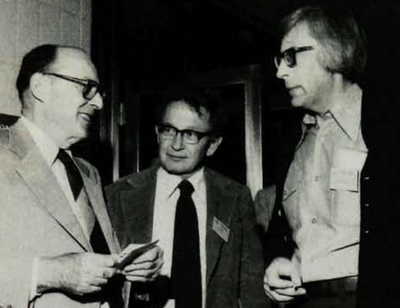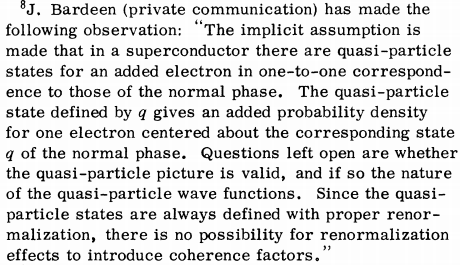Polaritonic Rabi and Josephson Oscillations
The Josephson effect is a strange one. It was discovered by a 22 years old Ph. D student (of Brian Pippard), the now-famous Brian Josephson (for some, the later-turned infamous), who worked out what happens when two superconductors are brought together, separated by an insulating barrier.
Josephson's work occurred as he was taking the class of Anderson on "solid-state and many-body theory" (Anderson was on a Sabbatical leave in Cambridge). He had presented the "broken symmetry" concept and some on-going Research on the problem of electron tunneling, that was causing turmoil in Letters of the Physical Reviews. Ivar Giaever, the least famous of the 1973 Nobel prize, had observed in 1960 the BCS gap directly from tunneling experiments. Bardeen described such tunneling experiments from the many-particle points of view[1], using to that effect the deeper Gor'kov formalism of field theory (Bardeen had hired Cooper to learn from him quantum field theory, feeling from the start that this was the correct formalism to attack the problem). Interestingly, from this formalism, Bardeen deduced there could be no quantum effects across a barrier. He opposed the work of Cohen, Falicov and Phillips suggesting otherwise (which led to delays for, and footnotes in, the publication) who left the problem at the normal-superconducting tunneling case, although Cohen had suggested to tackle the two-superconductor configuration. But Philipps was not enthusiastic[2] (maybe tired from Bardeen's objections) and this job was done by the Ph.D student attending the class from Anderson where such results were being presented.

Between two classes, Josephson found out a supercurrent would flow between the barrier and that this was "driven" by the phase difference between the two order parameters describing each condensate on both sides of the barrier:

This was dismissed by Bardeen, who objected all these works on the basis that the Hamiltonian was put by hand, making implicit assumptions. When the effect was confirmed experimentally (under the impulse of Anderson), Bardeen withdrew his objections. This is an interesting development in the history of Science because it shows how physics could be blocked in absence of experimental tests. To some experts (who sided with Josephson on the basis of their theoretical conclusions)[3], it mainly shows that Bardeen did not understand Gor'kov theory well enough[2]. The Josephson effect turned out to be both a striking and useful manifestation of superconductivity, e.g., leading to SQUIDs and record-value measurements of the ratio of fundamental constants $e/h$. Fundamentally, it brought forward the aspect of the phase. Anderson speculated how Josephson's paper went to the new journal Phys. Lett. rather than to Phys. Rev. Lett. because of "residual uneasiness on this score"[4]. This problem of the phase was not central to the Bardeen/Josephson confrontation. Their arguing was on whether electron-correlations could survive a normal-solid cutting the flow and the core of the discussion was on interpretation of Gor'kov theory. The key oversight from Bardeen appears to be in his early work on tunelling[1] where he observes that the gap vanishes in the normal solid, missing that in Gor'kov's $F$ function does not. The story would take another direction if we would go further down this path. Instead we are interested in this question of the phase.
(Anderson reminisced about these events[4]).
We were all-Josephson, Pippard and myself, as well as various other people The discovery who also habitually sat at the Mond tea Josephson and participated in the discussions of the next few weeks-very much puz zled by the meaning of the fact that the current depends on the phase.
In the framework of superconductors, the issue
Take the
This has been published in ![]() .
.
